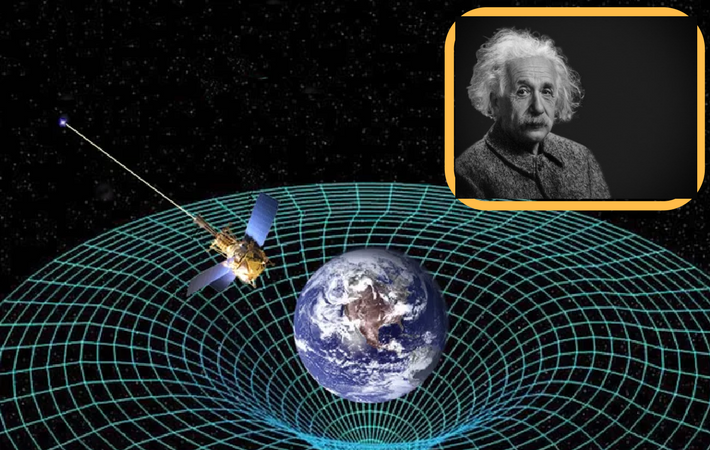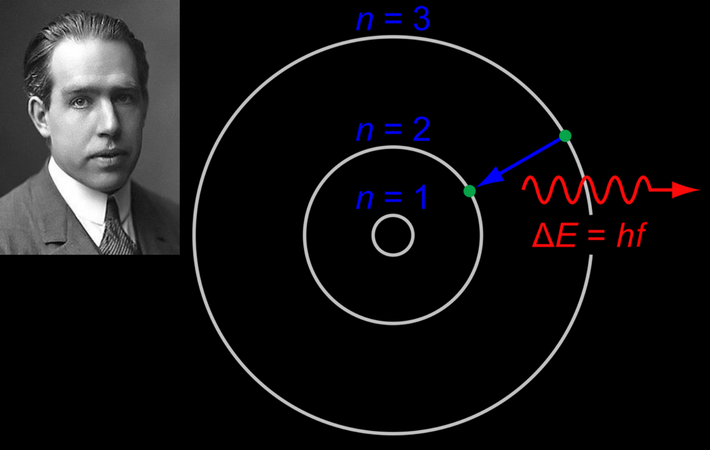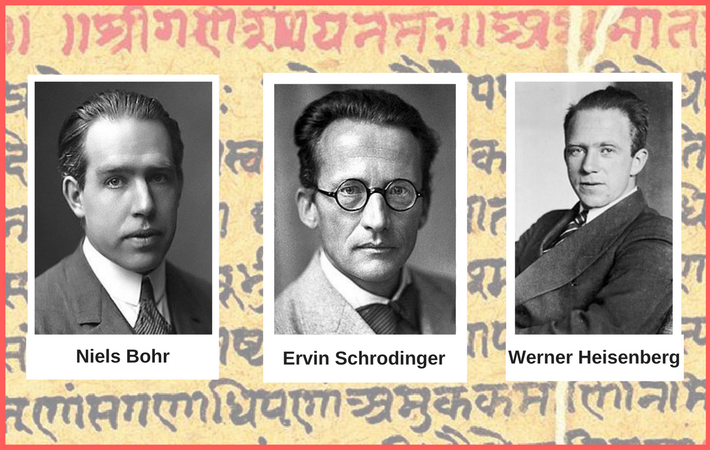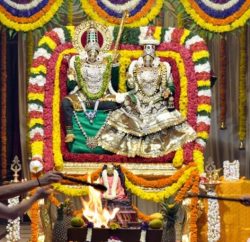In these days of deep belief only in science, attempts to discuss other kinds of belief from a rational platform is sure to be met with cynicism from a large section of the so-called intellectual society who are prejudiced by their belief in science. In this speech delivered at the International Conference on Beliefs & Beyond, organized by Bharatiya Vidya Bhavan (March 8 and 9, 2018), His Grace Madhu Pandit Dasa explores how beliefs, intuitions, premonitions and mysticisms have shaped modern science.
Is belief relevant in the modern scientific age?
There is no better way to answer this question than by citing instances from the history of science itself about the role played by intuition, belief, premonition and mysticism in the development of scientific theories.
Let us have a look at the origin of two of the most important modern theories of physics which has changed the world in the last century.
We are all aware about the Theory of Relativity by Albert Einstein and Quantum Mechanics by three scientific luminaries viz. Niels Bohr, Ervin Schrodinger and Werner Heisenberg. These two theories of modern physics that sprung up in the early part of the last century was an incredible breakthrough in scientific history and have since changed science itself by shaking the deterministic mechanistic world-view of Newton, believed to be true for centuries, to give way to a non-mechanistic probabilistic world-view. Practically every technology we see today in this world, from mobiles to energy to information technology is derived from these two discoveries of physics.
You will be surprised to know that both these theories had their origins in a dream that the scientists had which they pursued intellectually to understand. In other words, what has changed the very science itself had its origin in belief of the scientists in their dreams.

Theory of Relativity. Einstein himself acknowledges that a dream which he had as an adolescent was an inspiration for what was to become the Theory of Relativity. In his own words his dream was:
I was sledging with my friends at night. I started to slide down the hill but my sledge started going faster and faster. I was going so fast that I realized I was approaching the speed of light. I looked up at that point and I saw stars. They were being refracted into colors I had never seen before. I was filled with a sense of awe. I understood in some way that I was looking at the most important meaning in my life.
Einstein admits that his entire scientific career was a meditation on this dream and the theory of relativity was born of this exercise to figure out some meaning in this dream.

Quantum mechanics. Niels Bohr, the father of Quantum mechanics, who won the Nobel Prize in 1922, developed the model of the atom with electrons orbiting around the nucleus in quantized orbits. Till then the understanding of atom was that of a solid particle with negatively charged tiny particles embedded in it. Bohr writes that he attempted to design various frameworks for configuration of the atom but none could fit. One night, in his dream, he saw electrons spinning around the atom’s nucleus, like planets revolving around the sun. Upon awakening, he felt the vision accurate, and immediately went to his lab in search of scientific evidence to support his dream.

No doubt, final scientific knowledge itself is built on the rigorous scientific methods adopted by the scientists and not on dreams. But as we have seen in the above two cases, science does not advance, from A to Z, just by research and cold rationality.
The very minds of the scientists who built up this rigorous science, used methods beyond science, as in these two cases, to innovate and originate these world-changing theories and did not limit themselves to only rational processes, at least to originate these ideas. Some of the incredible breakthroughs in scientific history are the result of dreams, intuition or the mystical part of human brain. These are only just two examples.
Albert Einstein said:
The intuitive mind is a sacred gift and the rational mind is a faithful servant. We have created a society that honors the servant and has forgotten the gift.
Henri Poincaré rightly said:
It is through science that we prove, but through intuition we discover.
Science would not be where it is today if the power of belief was not employed by the intuition of the scientists in creating mind boggling hypothesis which they believed as an interim understanding in order to test it.
When a scientist creates a hopeful hypothesis, he also uses the power of belief that it is a highly probable explanation in his opinion. It is that hope that makes him device extraordinary experiments to prove it. Thus belief too plays a key role in expanding the frontiers of science. The only difference is that science has gone the extra mile to prove this hypothesis. And many traditional and culturally held beliefs have been useful but no one has bothered to prove them.

There is historical evidence that these scientific giants themselves admitted that they went beyond their rational processes to come up with the most powerful theories of our times. History has recorded that all three were in touch with the Vedas and particularly the Upanishads. Let us see what these two scientific giants of the 20th century had to say about Eastern knowledge.
Schrodinger wrote in his book ― My View of the World:
In all the world there is no kind of framework within which we can find consciousness in the plural; this is simply something we construct because of the temporal plurality of individuals, but it is a false construction … the only solution to this conflict, in so far as any available to us at all, lies in the ancient wisdom of Upanishads. The unity and continuity of Vedanta are reflected in the unity and continuity of wave mechanics. This is entirely consistent with the Vedantic concept of All in One. Most of my ideas & theories are heavily influenced by Vedanta.
Niels Bohr said:
I go into Upanishads to ask questions.

Take the case of the mysticism that surrounds great works of the mathematician Srinivasa Ramanujam who developed about 4000 theorems by the age of 32 with almost no formal training. Many of the formulas that he scribbled were discovered only fifty years later in a note book preserved by his wife.
Today physicists are using these mathematical tools revealed in his scribbled note book to understand the objects like black holes and string theory which is supposed to be the ultimate stuff the universe is made up of.
Ramanujam credits his works to Goddess Namagiri (Lakshmidevi, the eternal consort of Lord Narayana), Deity of Namakkal, who would visit him in dreams and present him with scrolls of complex mathematical formulas. He would then test and prove them after waking. His works are a miracle in field mathematics.
Top modern mathematicians are unable to explain how someone with no formal training, could come up with such mind boggling mathematical equations. The best mathematical minds in the world are even today working on these general theorems that represent these equations. So far they have not found even one of these theorems to be wrong.

No one can lead a normal life without beliefs. Apart from the correctness of the semantic content of the beliefs, belief by itself is a useful mental construct or shortcut to perceive and respond to reality of our everyday life.
Beliefs are self-learnt along the journey of our life by the influence of people, places, events, situations, etc., based upon the positive and negative effects it has on our deep instinctual search for power, knowledge, happiness and pleasure. Cultural beliefs have contributed tremendously towards the welfare of humanity. No doubt the misuse of belief is also rampant in the society for the vested interests of a few.
Beliefs, customs and practices, and its effects on human beings are plenty all over the world. What is lacking is the process that works on evidence based belief in order to prevent abuse of the phenomenon of human belief. Belief is an extremely useful human faculty that no one can do away with just because it is being misused by a few and because it is not fully understandable at present.
When such is the pivotal role that belief plays in man’s life, should not there be a serious effort to come together and empower the use of belief that benefits mankind and prevent the abuse of belief that harms mankind? The practice of beliefs has hitherto remained within the precincts of cultural and religious groups. Should not there be an attempt to put together what is evidence-based belief and share it among a larger audience for greater benefit especially those that solve problems of mankind?
This international conference is a small but significant step towards this.

A typical case for potential research is the subject of reincarnation.
There are many reported cases of near death experience all over the world. There are cases of children giving detailed description of places of their past life which has been verified to be true. But unless we have authentic investigative procedures to record evidence we cannot separate real from the fake and thus these beliefs never get conclusively proved either way.
I keep wondering why MIT and Harvard are not setting up a chair to study reincarnation. Is it again because of scientific prejudice of their current scientific belief that there is no life after death? Is that prejudice preventing them from setting up research to study reincarnation? Despite it being the belief of a billion people on this earth, there is not a single formal study in any university or research center anywhere in the world to investigate this belief. Quite surprising.

A really intellectual progressive society should not hesitate to explore any domain of knowledge. They should not stop the pursuit of these subtler truths just because the present day’s thinking tools are not capable of dealing with these still unknown domains of reality. We should attempt to find alternate tools to explore the secrets of nature. There are too many phenomena out there that stare at us and challenge our understanding which cannot be explained by the known laws of present day science. There are more things unexplained around us than explained.

Scientific knowledge should not be the only system of thought to command our attention though we are living in a scientific age. Various cultural and religious thought systems and traditions that have survived for centuries cannot be ignored.
The claim of science in the beginning was that it was dealing with truth. But today, with the development of mind-boggling theories in modern physics, there is a deep division among the scientific community whether science is about finding the objective truth out there or is it just modeling reality to study its effects. This is because most of the modern understanding of physics is based on theoretical mathematical models and it has very little to do with descriptions of reality as it truly exists for our senses.
Do atoms really exist as we visualize them? Do electrons exist?
Science or the founders of these ideas admitted that science can never answer that question and yet they use these concepts and unearth deeper mysteries of nature. The best answer the scientists can give is that we are studying electron-like effects and not electrons.
People challenge whether you can prove that soul exists? That question is also as stupid as the question whether electrons exist. The only answer we can give is also to say that we can see the effect of the soul in this body. Our answer would be to study the difference between a dead body and the same living person before dying. This is no less of a scientific answer than the answer science gives to the question whether electrons exist.

There is a deep paradigm shift in science away from mechanistic reductionism of Newton to holism. When science itself is moving today largely towards studying aggregates and complex systems and not really the truth out there, why can we not extend the rigorous scientific method to model beliefs, study its effects and develop theories as to how and why beliefs work, if it works.
In this way we can extend scientific methods into studying traditional beliefs that have worked for human society for generations. Once deciphered, these traditional beliefs will surely help man to enter into deeper secrets of nature.

Lastly, misuse of a thing does not make the thing useless. If there is cataract in the eyes the solution is not to pluck out the eyes but to remove the cataract. Just because human faculty of belief has been misused for exploiting the ignorant, we cannot eliminate beliefs from human society, especially beliefs that have stood the test of time.
That way science is also no exception to abuse. Today there are so many proven cases of unethical means of creating manipulated scientific data and statistics to work backwards in order to prove something for huge commercial gain, especially in social and medical sciences. Much research is conducted today for reasons other than the pursuit of truth.
Does it mean these sciences are to be abandoned? The answer is obviously a ‘No’.
On the same count, we are pleading for the case of not throwing out different beliefs within human society without a disciplined process of eliminating the fake ones and studying deeply the real ones through innovative, investigative and rational methods supported by human intuition.
The world is full of information on these kinds of beliefs about human mind and existence and it would be wise for modern man to be open-minded and look into creating a body of evidence-based beliefs that serves the good of humanity.
For instance karma and reincarnation are two beliefs of our country which have great influence in guiding human beings to regulate lust, greed and violence against other beings. What better application can one ask for from a belief system than one that regulates man’s unethical conduct, aggression and greed and bring peace and harmony within the society so much needed in the present day.
Ethical scientific research has led us so far in understanding the world. And extending ethical investigation and research into traditional beliefs will open up mankind’s search for knowledge to hitherto unexplored territories of nature.










